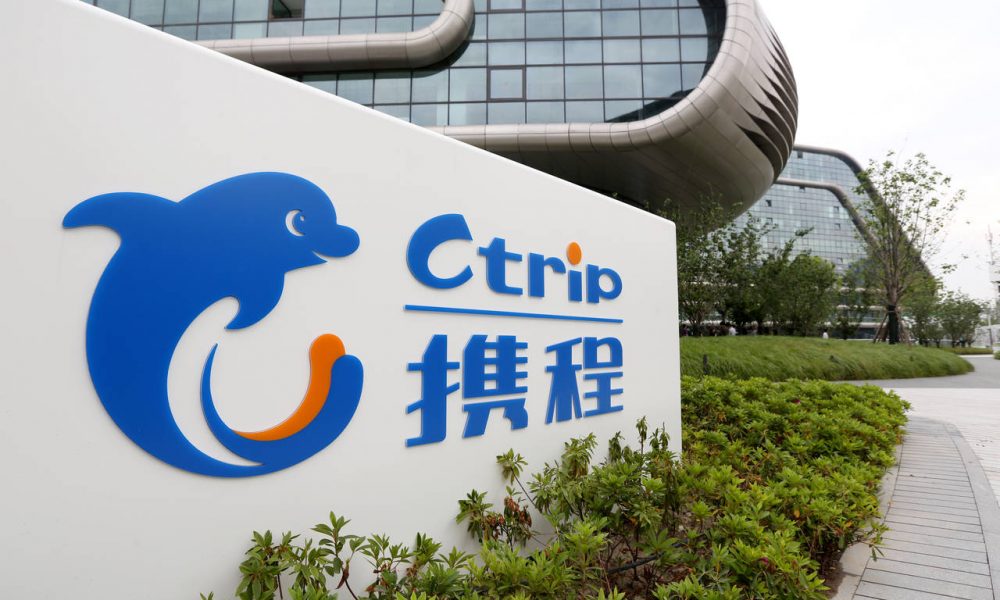Author: vivian
KFit Acquires Groupon Malaysia To Expand Beyond Fitness Into Local Services
KFit, a year-old service offering gym and healthcare services, has raised more than US$12 million from investors in its Series A funding round has announced today that it has acquired the Groupon Malaysia in an undisclosed deal. The startup is backed by Sequoia Capital India, 500 Startups, Southeast Asia Venturra Capital, SIG and Axiata Digital Innovation Fund.
The news was among expectations as three months earlier the company has acquired the e-commerce group’s Indonesia operations. whereby KFit says the deal is in line with its plan to become a leader in Southeast Asia’s online-to-offline space, short for O2O. Similarly, the company has also launched a deals app called Fave a few months ago whereby the functions of Fave are similar to Groupon.
The reason behind this series of acquisition and the pursuit of the offline-to-online model has been influenced by the signs of potential in China with China’s largest O2O player, Meituan-Dianping, raising US$3.3 billion earlier this year at a valuation of US$18 billion.
“Millions of local businesses are booming in China thanks to the adoption of O2O services, with hundreds of millions of consumers embracing these platforms as part of their day to day lives. The convenience and value benefits of these platforms are key drivers of this new norm. This future is inevitable for Southeast Asia and we hope to be at the forefront of this exciting shift,” KFit CEO and co-founder Joel Neoh said in a statement.
Neoh, the founder of Groupon Malaysia has previously helmed Groupon in Asia Pacific. With this, KFit said Groupon Malaysia will share a fate similar to Groupon Indonesia, whereby it will transition to Fave in early 2017. Essentially, this means that we will see it add new categories for fitness, wellness and other gym-related sectors to its current commerce business. KFit also said that it will retain around 90 percent of staff, with senior Groupon Malaysia executives likely to move on to new roles inside the company.
“This acquisition will see Groupon Malaysia transition to Fave in early 2017 and expand Fave’s offerings to cover restaurants, beauty, wellness, gyms, studios, hotels, holidays, leisure, entertainment, and professional services,” KFit explains.
Founded in April 2015, KFit started out by offering unlimited gym and fitness classes – akin to US-based US$400 million ClassPass – for a fixed monthly fee. It tweaked its model this year, limiting its membership to 10 classes per month, and then branched out into deals for services like massage, spa, beauty and salons as well.
With the present events unfolding, KFit is diverging and setting itself apart from its US predecessor. Instead of becoming a fitness sharing platform in Asia, the company now walks the path of becoming an O2O company as it expands to various other verticals such as food and restaurants, beauty and wellness, and lifestyle and activities. The platforms under the KFit Group – Fave, Groupon Indonesia and KFit – have connected millions of customers to thousands of offline businesses in key Southeast Asian market centers.
“With Groupon Indonesia achieving nearly 2 times growth since our acquisition, we are confident that the same growth principles will bring an exciting new local commerce offering to Malaysia,” said KFit co-founder and CEO Joel Neoh.
Post-acquisition, Groupon Malaysia, an e-commerce marketplace connecting millions of subscribers whereby local merchants will transition into Fave and cover restaurants, beauty, wellness, gyms, studios, hotels, holidays, leisure and entertainment as well.
KFit is a definite startup to note as the Malaysia-based startup within this less than one-year period has raised over US$15 million and is backed by high-profile investors such as Sequoia Capital and 500 Startups, among others.
For more information, please visit KFit at Crunchbase for the company’s timeline activity.
By Vivian Foo, Unicorn Media
Black Friday Sales Mark All-Time-High With Mobile Revenue Exceeding US$1 Billion
An American tradition, this year Thanksgiving has marked the start of a sales frenzy which continues on Black Friday and ends on the note of CyberMonday. The three holidays lined up to make the most frenzied shopping spree that leads up to the busy Christmas period which is lying only a month away.
But it is not just the United States. As consumers from across the world had spent more than US$5.3 billion in the two-days sales starting on Thanksgiving last Thursday which was extended to Black Friday. This figure accounts for an 18 percent increase from the previous year, according to a report from Adobe Systems.
In this scenario, Amazon, the giant internet business says that Thanksgiving is gradually becoming the new Black Friday as the company noted that some of its site’s Best Black Friday deals have already heated up during the “Turkey 5”.
However, when evaluating just Black Friday, the sales remains the highest as compared to Thanksgiving. The popular shopping festivity accounted for an estimated US$3.34 billion by the end of the day, which is a 21.6 percent increase from the same day last year, as according to Adobe Systems.
But comparatively, this year more buyers were going online for bargains and convenience instead of the traditional campout outside bricks and mortar shop. That is to say, online sales has outshined offline sales with spending via mobile devices on Friday in the United States seeing an increase of 33 percent to an all-time high of US$1.2 billion.
These results were not unexpected as it was clear from the start that the mobile platform has a significant impact on e-commerce sales, looking at Alibaba’s Singles Day Sales which was held on November 11. Furthermore, mobile platforms are proved to be the more convenient option for customers as they can perform their shopping anywhere, anytime and in any way.
Similarly, major retailers, like Amazon, Walmart, Target and eBay, noted that mobile traffic and sales were on the rise. Amazon said that mobile orders on Thanksgiving topped Cyber Monday last year, for example, while Walmart said that over 70 percent of website traffic on Thanksgiving was mobile. Target said that 60 percent of Thanksgiving sales were from mobile devices.
What is interesting, however as reported by Adobe, is that smartphones do not drive as many conversions as tablets and desktops. Because while conversions have as a whole increased, smartphone conversions were the lowest at 1.9 percent, as compared with the conversion rates of tablets at 3.7 percent and desktops at 4 percent. Holiday averages also show a similar trend where it was still the lowest for smartphones at 1.3 percent, while tablets and desktop are 2.9 percent and 3.2 percent respectively.
These results obtained in the Adobe’s report was based on aggregated and anonymous data from 22.6 billion visits to retail websites and consist of 80 percent of all online transactions from the top 100 U.S. retailers. Though it may be argued that Adobe’s sample does not cover the entirety of the scenario but still the sample is large enough for its numbers to be fairly close.
Additionally, Adobe also noted this year’s top-selling electronics which were Apple iPads, Samsung 4K TVs, the Apple Macbook Air, LG TVs and Microsoft Xbox. While top-selling toys included Lego Creator Sets, electric scooters from Razor, Nerf Guns, DJI Phantom Drones, and Barbie Dreamhouse.
“The negative impact on online shopping we saw following the election has not been fully made up, but consumers are back online and shopping,” said Tamara Gaffney, principal analyst, and director, Adobe Digital Insights, in a statement. “As spending ramps up on Black Friday, we are back on track. We still expect Cyber Monday to surpass Black Friday and become the largest online sales day in history with $3.36 Billion.”
On another note, a promotional email which reads “President-elect Trump loves a great deal” shows that even the President-elect Donald Trump has participated in the online sales excitement. On Friday morning, Trump’s online store has made an announcement that it was offering a 30 percent off deal on all campaign products, which includes a US$149 Christmas ornament.
For more information, please visit Adobe Online Shopping Data
By Vivian Foo, Unicorn Media
Phillipines Jollibee Completes Buyout Of Happy Bee In China
Fast food service giant Jollibee Foods Corp (JFC) is confirmed the full ownership of Happy Bee Foods Processing Pte Ltd after it has secured government and regulatory approval in China to buy out its joint venture partner. Its wholly-owned subsidiary, Jollibee Worldwide Pte Ltd (JWL) acquired the remaining 30 percent stake in the China-based food manufacturer Hua Xia Harvest Holdings Pte Ltd., through an equity-and-asset swap deal valued at US$10.4 million.
This move lies in line with the Asian firm’s target as it seeks to rival McDonald to become one of the world’s top 10 fast food brand. Looking at its present oversea growth, the Asian food company has a total operation of 22 commissaries worldwide, that is 15 in the Phillippines, three in China and the United States as well as one in Vietnam. In a statement, the company said that it would continue to pursue an aggressive drive to buy more overseas companies with ticket sizes up to US$100 million.
This acquisition frenzy has begun in 1994 when it first acquired 80% of Greenwich Pizza in the Philippines. Since then, the Filipino fast food chain has more than 10 companies under its belt with its latest acquisition, prior to this, happening late last year at a 40 percent stake in US-based brand Smashburger Master LLC for US$99 million.
But aside from its ambitious appetite, another reason behind this partnership is so that Happy Bee can solely support the continued growth of its flagship restaurant Yonghe King in China, which is one of JFC’s largest business in China with a total of 316 stores which contributes 8 per cent to JFC’s worldwide system-wide sales.
“The objectives behind the acquisition of the 30 per cent ownership of Happy Bee which gave JFC 100 per cent ownership of the food processing facility are to enable JFC to concentrate on supporting the growth of its Yonghe King business and on further improving its food quality and increasing the assurance of its food safety,” says Jollibee’s Vice President Valerie Amante.
Henceforth, with this change in ownership, Happy Bee will no longer produce and sell food products to institutions other than JFC’s restaurant businesses. It is noted that the transaction is basically an asset for equity swap, with Hua Xia selling its 3,518,018 shares in Happy Bee priced at $2.96 per share. The transfer of shares and assets are expected to be completed within 2016.
On another note, JFC added that it is also exploring a joint venture possibility with ISE Foods Inc, a Japanese firm for an egg production facility in the Philippines.
For more information, please visit http://www.jollibee.com.ph/
By Vivian Foo, Unicorn Media
China’s Ctrip.com To Buy Out Skyscanner In US$1.74 Billion Deal
Shanghai-based Ctrip.com International Ltd, one of China’s largest online travel agency, announced on Wednesday that it is to acquire Skyscanner Holdings Ltd, a travel search website in a deal valuing the Edinburg-based startup at an amount of US$1.74 billion. This will be the sixth acquisition for the China online travel website after it last acquired Sunaya for US$16 million in July 2015.
Under the terms of the deal, which is expected to close by year’s end, Skyscanner’s current management team will continue to run its operations independently. The details of the deal are still under negotiation but will mainly consist of cash, with the rest consisting of Ctrip ordinary shares and loan notes.
Founded in 2003, Skyscanner was set up to solve the frustration with finding cheap flights by creating a platform which enables users to compare prices from different travel sites when searching for flights, hotels, and rental cars. The website, to date, is available in more than 30 different languages and currently serves about 60 million monthly active users.
Prior to this, Skyscanner was reportedly exploring a sale or an initial public offering. The startup in January has a funding round securing 128 million pounds (about US$158 million) from a group of investors consisting of Malaysia’s sovereign fund, Khazanah Nasional and Yahoo Japan Corp which brought its value to US$1.6 billion. Skyscanner’s investors also include Sequoia Capital, one of Silicon Valley’s largest venture-capital firms.
Ctrip.com, on the other hand, was founded in 1999 and is one of China’s biggest travel businesses. The company has its IPO in 2003 and since then has made several acquisitions which include Travelfusion and ToursForFun. As Ctrip proceeds to buy out Skyscanner, this will be its first step moving into the global meta-search territory. This move follows the Chief Strategy Officer of Ctrip, Jenny Wu’s declarations of globalization on stage at Phocuswright last week.
Furthermore, the deal would “strengthen long-term growth drivers for both companies,” said James Jianzhang Liang, the co-founder and Executive Chairman of Ctrip. “Skyscanner will also complement our positioning at a global scale and Ctrip will leverage our experience, technology and booking capabilities to Skyscanner’s,” he added.
The co-founder and chief executive Gareth Williams also commented on the deal, saying that “Ctrip and Skyscanner share a common view – that organizing travel has a long way to go to being solved. To do so requires powerful technology and a traveler first approach.”
On an elaborative note, Skyscanner, which has built out a strong global business, was the last remaining global meta-search without a big travel parent. Trivago, which filed for IPO last week, is under Expedia while KAYAK is part of the Priceline group.
Henceforth, this will be Ctrip’s first play into the meta-search space outside China. The company bought and now owns Qunar, which started out as a meta-search and has now morphed into meta-search-plus. This partnership will give Ctrip access to global customers at the upper funnel of search while providing Skyscanner access to the massive Chinese market.
Following this announcement, Ctrip’s shares went up 9.2 per cent at US$44.75 in extended trading.
For more information, please visit https://www.skyscanner.net/
By Vivian Foo, Unicorn Media
Malaysia’s MaGIC, Uber, And Digi Initiate Ideation Lab – ASEAN’s Next Great Idea To Groom Selected Startups
Malaysian Global Innovation and Creativity Centre (MaGIC), ride-hailing app Uber and Telecom operator Digi have initiated an ideation lab whereby 20 startups throughout Southeast Asia will be groomed to be investment-ready and this does not require any equity from the participants. A few selected ones will also proceed to the next round and be given the chance to meet early stage investors.
The program is a six-day initiative known as “ASEAN’s Next Great Idea” which will conclude on November 30. Mentors at the MaGIC include Chelsey Lepage, Innovation Lead at UNICEF, Prashant Pathmanaban, Head of Technology at Google and Michael Octoman, Partner at Navis Capital, among others.
“During the program, the top 20 startups – shortlisted from a pool of 417 applicants – will learn how to develop three key aspects of their future business which are their customer, product, and market,” MaGIC said in an announcement on Tuesday.
Additionally, the lab will also provide participants with direct access to the best resources in the ecosystem: MaGIC’s expertise in building entrepreneurs, Uber’s real world experiences, and Digi Incub8’s strength in startup strategy. All these will help the entrepreneurs to fine-tune their ideas or concepts and create a working prototype, preparing them for the next stage of seed investment and funding.
Following this, the top 10 participants will present their refined business ideas to key executives from MaGIC, Uber, and Digi at the Global Entrepreneurship Community event on December 8 in Kuala Lumpur. Furthermore, qualified ideas will have the opportunity to meet early stage investors and key players within the entrepreneurship ecosystem in San Francisco, as well as a visit to Uber’s Silicon Valley headquarters.
“I hope with programs such as ASEAN’s Next Great Idea lab, more and more individuals are encouraged to come forward with their ideas and develop them further. The emergence of new ideas is what keeps our entrepreneurship ecosystem growing,” said MaGIC CEO Ashran Dato’ Ghazi.
With this, ASEAN’s startup ecosystem will continue to thrive with ideas that can dramatically shape people’s digital lifestyles with their smart devices. While the role MaGIC plays is through instilling an entrepreneurial mindset where solving a problem is at the heart of any startup.
“The ambition now is to help translate the growth potential of these ideas and startups into creating long-term, sustainable businesses,” Digi’s Chief Digital Officer, Praveen Rajan added.
For more information, please visit http://mymagic.my/en/
By Vivian Foo, Unicorn Media





